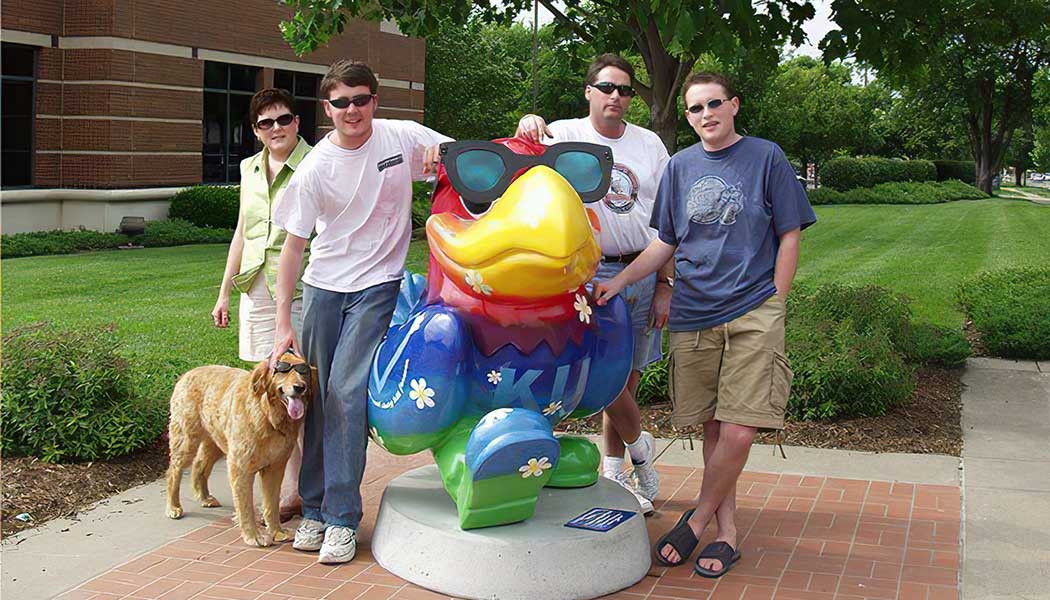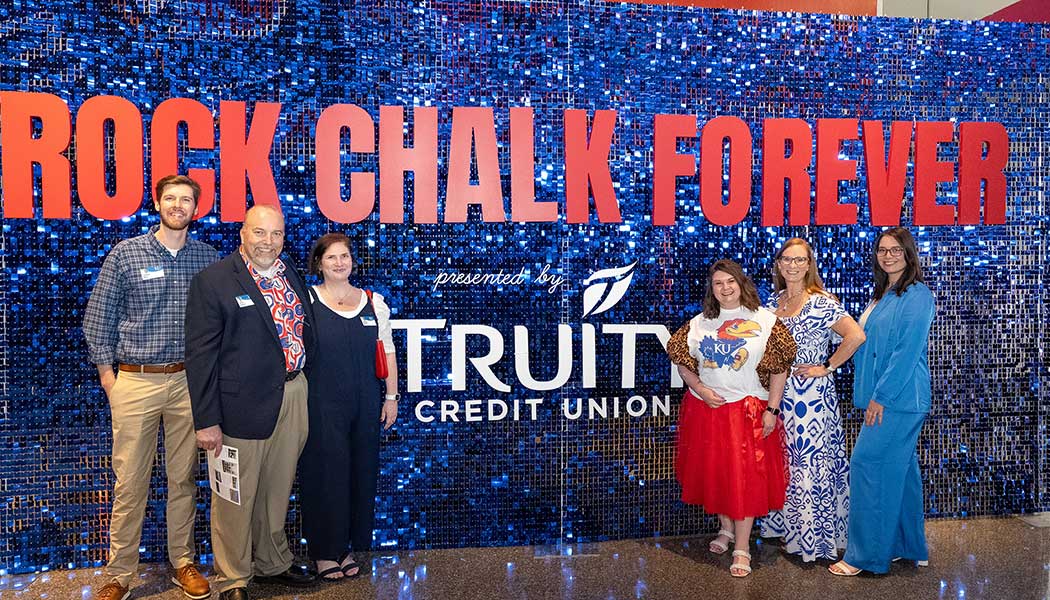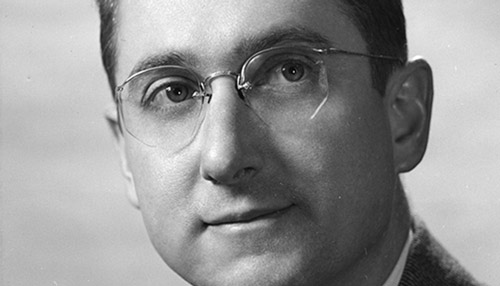Team Effort
Rubicon founder harnesses the power of veterans for pandemic response
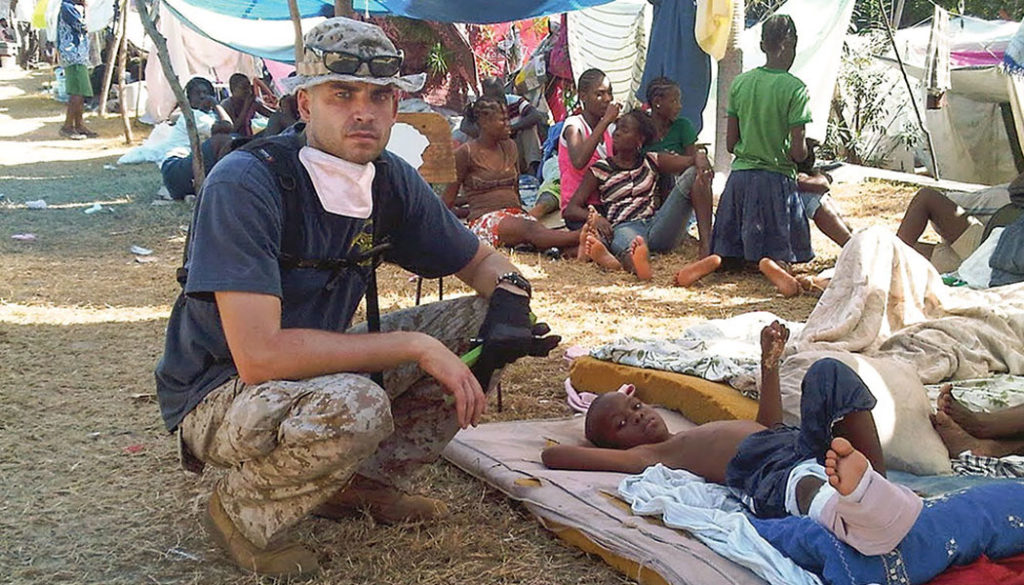
As William McNulty helped care for survivors of the 2010 Haiti earthquake, an insight guided him to co-found Team Rubicon: Military veterans—trained in crisis management, experienced at responding calmly under pressure and passionate about service—are ideally suited to fill a gap in disaster-relief efforts around the globe.
International agencies can take weeks to mobilize. McNulty and a fellow Marine Corps veteran, Jake Wood, saw that firsthand when they got to Port-au-Prince three days after a 7.0 magnitude earthquake plunged the Caribbean nation into chaos. Over the next 18 days their four-man team grew to 60, treated more than 3,000 wounded and helped re-establish emergency care at a hospital crippled by the quake and its aftermath.
Seeing a role for a volunteer force that could mobilize quickly, travel light and arrive at the scene of a disaster while the need was most acute, McNulty, c’01, suggested the Haiti mission could be a model for disaster relief that not only helps victims, but also aids veterans looking for purpose and opportunities to serve outside the military. Team Rubicon was born.
Ten years later, with more than 100,000 volunteers in five countries (and with four countries working to launch teams), Team Rubicon faces a global health crisis that calls for different tactics.
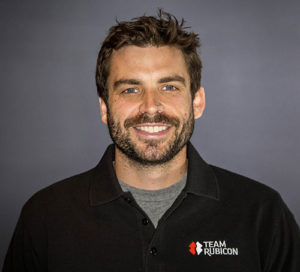
How does a group known for putting armies of volunteers on the ground contribute to a pandemic response that counts lockdowns and social distancing among its most effective tactics?
By drawing on its military ethos.
“I’ve watched Team Rubicon consistently reinvent itself during times of crisis, and this is no different,” McNulty says. “In the Marines, they used to say ‘improvise, adapt and overcome.’ Not to sound more cliché, but these are men and women who know how to lead, follow or get out of the way.”
In the United States, that has meant establishing a field hospital in California—Team Rubicon USA’s first domestic medical mission. In the United Kingdom, Team Rubicon UK is coordinating medical needs of local communities with the British Red Cross. Team Rubicon Australia is providing a “volunteer surge capacity” the country’s government can tap when needed.
McNulty’s efforts have earned several awards, including an honorary Doctor of Humane Letters from KU in 2017. Later that year, he stepped away from Team Rubicon Global while maintaining involvement as “founder emeritus.” He returned as CEO in January, shortly after completing a Team Rubicon mission to help some of the 3,000 families who lost homes to devastating Australian bushfires last year. Serving with two dozen veterans from four countries reassured him he still has passion for relief work, he told Johns Hopkins University’s The Hub. “Being on the end of the shovel again told me everything I needed to know.”
Team Rubicon Global doesn’t conduct disaster response operations; it builds, trains and supports the Team Rubicon country units that do, by providing field operations instruction, central technology services, strategic partnerships and fundraising. A matching grant from NSTXL, the National Security Technology Accelerator, raised $212,000 in April to help TRG combat COVID-19.
“Our support during COVID-19 is entirely focused on helping those countries respond to their domestic crises,” McNulty says. In the United Kingdom, the organization finds housing for deployed grayshirts (as Team Rubicon calls its volunteers) through a partnership with Airbnb. In the U.S., it aids New Orleans officials with planning and logistics in the city’s response to COVID-19. In Canada and Australia, it provides access to U.S. corporations with funding interests in those countries.
Country units are made up largely of members of each nation’s military, but Team Rubicon has up to now prided itself on sending volunteers wherever they’re needed, giving members opportunities to serve all over the world.
“What’s different about the current situation,” McNulty says, “is that each country unit is mobilizing nationally. Our engagement numbers are the highest they’ve ever been, because each country unit is conducting a national domestic response. When there’s a national cry for help, no one is quicker to answer their nation’s call than the men and women who’ve already served in its armed forces.”
RELATED ARTICLES
/




